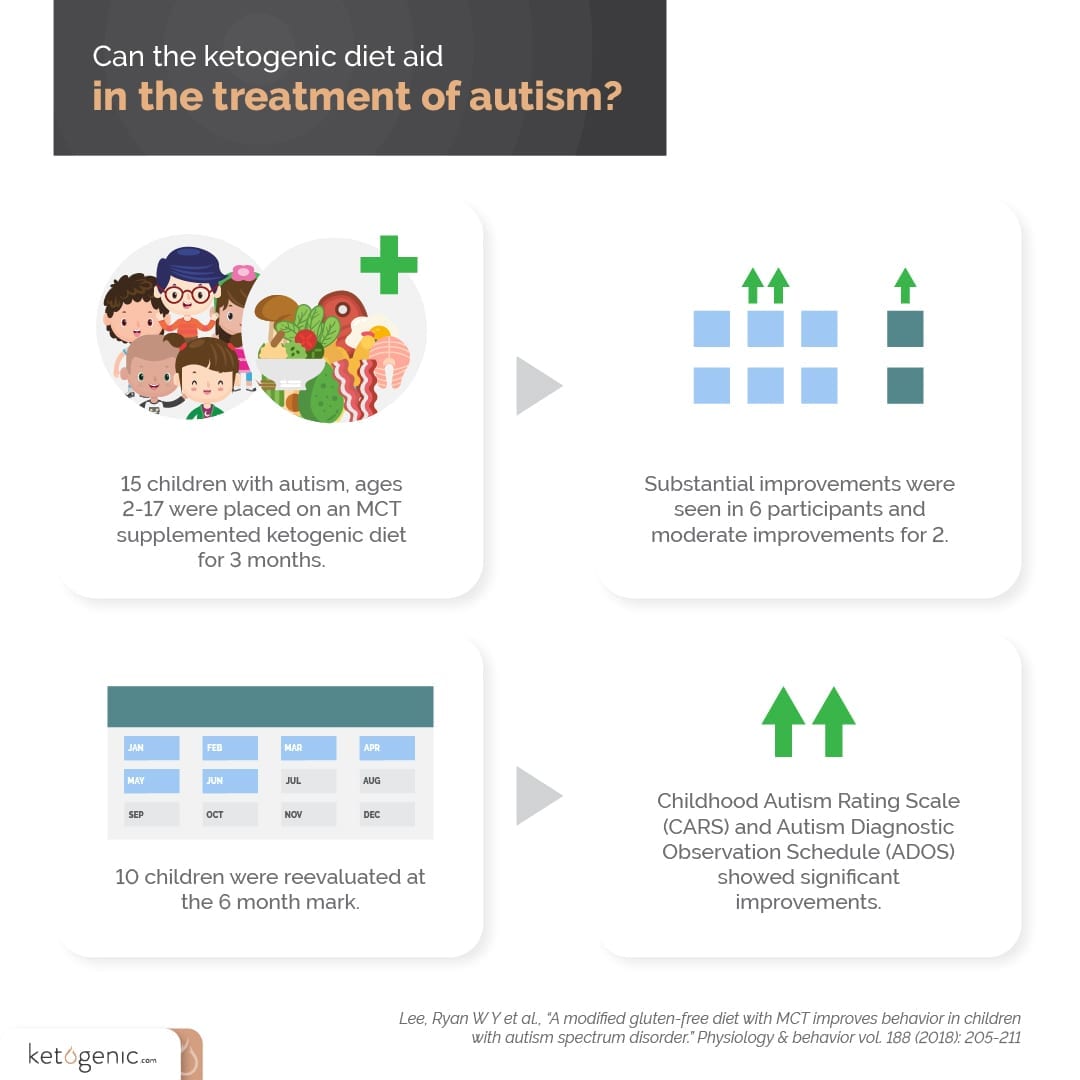
The ketogenic diet has shown promise with a range of neurological disorders, including autism. So, what is autism? What does the research say about keto for autism?
What is Autism?
Autism spectrum disorders (ASD) is a complex neurodevelopmental condition associated with brain development. Spectrum refers to the wide range of symptoms and severity. Autism ranges from high functioning to severe.
Autism typically starts in early childhood and impacts the socialization with and perceptions of others, often leading to issues with communication and interactions. Autism is characterized by verbal and non-verbal communication, abnormal social interaction,
and limited interest in the surrounding environment [1] [2] [3] [4].
Autism doesn’t have a single known cause. Genetics and environmental factors might be involved, such as:
- Tumors developing in the brain
- Being male
- Certain biochemical changes
- Neurometabolic and mitochondrial dysfunctions
- Having a family history
- Having certain other medical conditions, such as tuberous sclerosis
- Preterm babies (born before 26 weeks)

What are the Symptoms of Autism?
Symptoms of autism include:
- Reduced eye contact
- Difficulty communicating and adjusting to social situations
- Lack of facial expression
- Loss of speech, lack of speech, or delayed speech
- Repetitive movements, such as rocking, hand-flapping, or spinning
- Adheres to particular routines
- Disturbed by slight changes in routine
- Coordination difficulties and odd movement patterns, such as walking on toes
- Learning difficulties
- Light and sound sensitivity
- Fascination with details of an object, such as spinning the wheels on a toy car
What Does the Research Show About Keto and Autism?
The research on the ketogenic diet and autism is impressive. The metabolic benefits of the ketogenic diet can diminish symptoms of autism. Studies are mounting and highlighting how a ketogenic low-carb, high-fat diet can improve mitochondrial function, neurotransmitter function, and the behavioral symptoms of autism [5] [6] [1]
In the research, the ketogenic diet positively alters the gut bacteria and helps with autism, emphasizing the importance and the pivotal impact of the gut-brain connection. The ketogenic diet exerts strong neuroprotective effects on social behavior and cognition [8] [9].
In one study with autistic children, the ketogenic diet was far superior compared to a gluten-free, casein-free diet. The autistic children on the ketogenic diet achieved an impressive outcome in cognition and social ability [10].

Read These Impressive Keto Success Stories!
Get inspired and read some of our heart-warming keto success stories. Find out how adults like Natasha and children like Christian are using the keto diet to transform their health and reduce or alleviate symptoms of autism:
For more info, check out our Autism Spectrum Disorder Doctors Guide in Keto Club.
Have You Used Keto for Autism?
Comment below and share your journey on how keto positively changed your life!
References
National Institute of Mental Health. Autism Spectrum Disorder: Overview.
U.S. National Library of Medicine.Autism Spectrum Disorder
Mayo Clinic. Autism Spectrum Disorder.
Ruskin, D. N., Svedova, J., Cote, J. L., Sandau, U., Rho, J. M., Kawamura, Jr, M., Boison, D., & Masino, S. A. (2013). Ketogenic diet improves core symptoms of autism in BTBR mice.PLoS One, 8(6),
Napoli, E., Duenas, N., & Giulivi, C. (2014). Potential therapeutic use of the ketogenic diet in autism spectrum disorders. Frontiers in Pediatrics,
Zarnowska, I., Chrapko, B., Gwizda, G., Nocun, A., Mitosek-Szewczyk, K., & Gasior, M. (2018). Therapeutic use of carbohydrate-restricted diets in an autistic child: A case report of clinical and 18FDG PET findings. Metabolic Brain Disease, 33, 1187-1192.
Newell, C., Bomhof, M. R., Reimer, R. A., Hittel, D. S., Rho, J. M., & Shearer, J. (2016). Ketogenic diet modifies the gut microbiota in a murine model of autism spectrum disorder.Molecular Autism, 7(37),
Hallbook, T., Ji, S., Maudsley, S., & Martin, B. (2012). The effects of the ketogenic diet on behavior and cognition.Epilepsy Research, 100(3), 304-309.
El-Rashidy, O., El-Baz, F., El-Gendy, Y., Khalaf, R., Reda, D., & Saad, K. (2017).Ketogenic diet versus gluten free casein free diet in autistic children: A case-control study.Metabolic Brain Disease, 32(6), 1935-1941.








